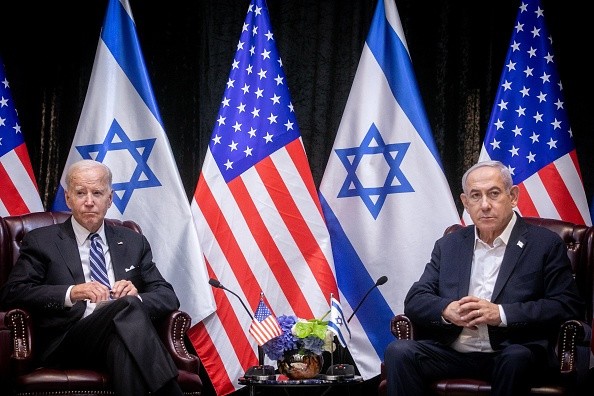The Biden administration supports Israel in taking a humanitarian pause throughout the war against Hamas to rescue hostages.
The humanitarian pause could help Palestinians in Gaza move freely and humanitarian aid can enter the enclave.
Israel-Palestine Humanitarian Pause

According to The White House, President Joe Biden and Israeli Prime Minister Benjamin Netanyahu discussed the possibility of humanitarian pauses on a call.
Biden suggested to have a three-day pause to rescue the hostages. Furthermore, three days could help with verifying the identities of the hostages, as reported by Axios.
Netanyahu said on ABC News, "There'll be no ceasefire, general ceasefire, in Gaza without the release of our hostages."
But Netanyahu also considered taking a tactical pause to enable humanitarian goods and rescue hostages. Two senior US officials discussed that their negotiations with the Israelis would continue as part of an ongoing process.
Netanyahu closed the gap between the US and has been considered their closest ally. A senior US official said, "It's much better that Netanyahu's indicating an openness to US requests for pauses in fighting than rejecting it out of hand."
The US officials said there was no difference between "humanitarian" and "tactical" pauses. National Security Council spokesperson Adrienne Watson said in Politico on Tuesday that they support tactical pauses and continue striving to achieve their goal.
The movement of the US to help Israel led Biden to send Secretary of State Antony Blinken to Israel and other Middle Eastern countries, followed by CIA Director Bill Burns.
Read Also : Santa Barbara: Scuba Dive Captain Imprisoned for Criminal Negligence in Deaths of 34 People
Gaza Conflict
On October 7, Hamas launched a surprise attack that killed more than 1,400 people in Israel. Israel has been in a difficult situation to allow the delivery of humanitarian aid into the Gaza Strip.
In the surprise attack, Hamas took more than 200 hostages who are currently being held in the Gaza Strip. Israeli forces surrounded the Palestinian enclave during the retaliation, which caused limited access to food, water, and fuel to around 2.3 million people.
Abu Sitta, who has been working at the Shifa and Ahli hospitals in Gaza, said they have had to execute surgery on some children without proper anesthesia. He added that he had seen a lot of traumatized children without a family by their side.
Israel has also launched thousands of airstrikes and a ground offensive, which killed more than 10,000 people. Israel has received and resisted calls from Arab countries, demanding an immediate ceasefire. Along with the US, the European Union also called for a humanitarian pause to allow humanitarian aid into Gaza.
Eighteen heads of United Nations agencies, primarily American, demanded to end the war immediately as their 88 colleagues had died during the war, the highest number of United Nations fatalities ever recorded in a single conflict.
Sen. Tim Kaine (D-Va.), who led a joint statement by Senate Democrats, said the pauses should be more than an hour or two to release more hostages.
© 2026 HNGN, All rights reserved. Do not reproduce without permission.








